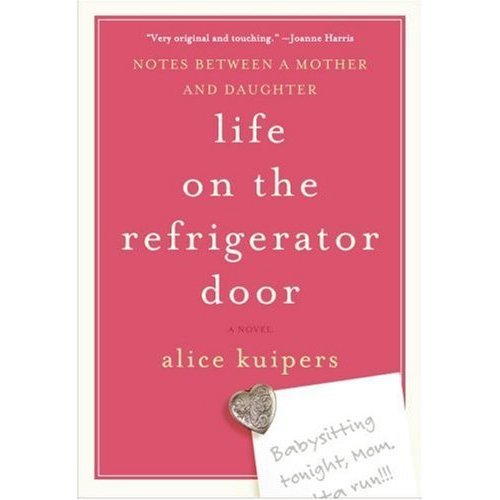We hope you enjoy this short story, and that you’ll want to keep reading about these characters in Maids of Misfortune: A Victorian San Francisco Mystery .
.
It’s the summer of 1879, and Annie Fuller, a young San Francisco widow, is in trouble. Annie’s husband squandered her fortune before committing suicide five years earlier, and one of his creditors is now threatening to take the boardinghouse she owns to pay off a debt.
Annie Fuller also has a secret. She supplements her income by giving domestic and business advice as Madam Sibyl, one of San Francisco’s most exclusive clairvoyants, and one of Madam Sibyl’s clients, Matthew Voss, has died. The police believe his death was suicide brought upon by bankruptcy, but Annie believes Voss has been murdered and that his assets have been stolen.
Nate Dawson has a problem. As the Voss family lawyer, he would love to believe that Matthew Voss didn’t leave his grieving family destitute. But that would mean working with Annie Fuller, a woman who alternatively attracts and infuriates him as she shatters every notion he ever had of proper ladylike behavior.
Sparks fly as Anne and Nate pursue the truth about the murder of Matthew Voss in this light-hearted historical mystery set in the foggy gas-lit world of Victorian San Francisco.
* * *
Dandy Detects
A Victorian San Francisco Story
By M. Louisa Locke
This is a work of fiction. Names, characters, places, and incidents either are the product of the author’s imagination or are used fictitiously, and any resemblance to actual persons, living or dead, business establishments, events, or locales is entirely coincidental.
Copyright © 2010 Mary Louisa Locke and reprinted here with her permission
Barbara Hewitt sat by the open window, drinking in the faint breeze that barely touched the flame of the candle sitting on the table in front of her. It was nearly eleven at night, yet her attic bedroom refused to release the accumulated heat of the day. While only her second September in the city of San Francisco, she was already familiar with the odd habit the weather had of producing the first searing temperatures of summer just in time for the fall school term.
Today her students at San Francisco Girls High had wilted under the requisite five layers of clothing that female modesty dictated, and she had noted that none of them had been willing to forgo the newly fashionable polonaise wool dresses that had clearly been specially tailored for the start of school. She smiled to herself, thinking of the dampness of their knitted brows as they struggled over their first English literature essays–essays that she was trying to finish grading by candlelight so that she could return them in the morning.
A raised voice and a sharp sound shattered her reverie, and she looked out the window into the illuminated back room on the top floor of the house across the alley. A lit oil lamp revealed in stark detail the tableau of a man and a woman and a dog. The shaggy black dog was clutched in the arms of the woman, who was sitting at an upright piano, her shining blonde head bowed. The wide-shouldered man loomed over her, his hands pressing down on the lid that covered the piano keys. The sound Barbara had heard probably came from the man slamming the lid down, since the soft notes of a Beethoven sonata had now been replaced by silence. But it just as well could have been the sound a man’s hand made when it came forcibly against the delicate skin of a woman’s face.
Barbara remembered another room, on another breathlessly hot night, and another furious man. But that room had also contained the increasingly frantic wails of a three-year-old boy, a sound that had driven her across time and space to end up in this attic in Mrs. Fuller’s O’Farrell Street boarding house. She stood up and turned her back on the window, taking up the candle to move across the room to an adjoining alcove where her young son lay asleep. Jamie was now eight, and he slept in that deep, drugged state that healthy children effortlessly achieve. She briefly stroked his sweat-darkened short hair that the summer’s sun had burnished golden, and her heart turned over.
She then noticed that Dandy, Jamie’s terrier, was sitting upright on the bed, staring alertly at her. The candlelight revealed the blaze of white on his chest and the white around his neck and front paws. The white patches looked so much like a starched white shirt against his black fur that Mrs. O’Rourke, the boarding house cook and housekeeper, had exclaimed, “Oh, Jamie, with that squashed-in face, if he doesn’t look like a street tough trying to pass as a high-class gent. A dandy right enough, all dressed up in his fine evening clothes.”
Dandy, ears erect on either side of his round forehead and slightly bulging eyes reflecting the candle glow, cocked his head and wrinkled his short muzzle to emit a soft, questioning “woof.”
“Shush, Dandy,” Barbara whispered. “Don’t wake up Jamie. I am sure everything is all right.”
“Gracious me, I do declare that if this heat continues I shan’t be able to eat a bite. Now, dear sister, I do insist that you take some of this chicken; you must keep up your strength. How clever of Mrs. O’Rourke to think of making this cucumber soup; a fine choice on a day like this. I don’t remember when we have had such a string of hot days, not here in San Francisco. Now, in Natchez, where Miss Millie and I spent our youth, this would be a mild summer day. Oh, my goodness, Millie, do you remember how hot it got back in Natchez? I….”
Barbara let the older woman’s conversation wash over her as she picked at her dinner. She was exhausted from several sleepless nights, and her head had been so muzzy at school today that she had finally let her last period students work silently on their poetry assignments because she couldn’t summon the energy to listen to their recitations. She looked over at Miss Minnie Moffet, who was continuing to tell the rest of the boarders about summers in Natchez, and she wondered at the woman’s determined cheerfulness. Miss Minnie and her sister, Miss Millie, who must be in their early seventies, shared a tiny room across the hall from Barbara. If Miss Minnie’s stories had any connection to the truth, she and her sister had not been born poor back in Natchez. Nevertheless, some hinted-at-tragedy had landed them in San Francisco where they eked out their living as skilled seamstresses. Barbara noticed that Miss Millie, who looked so like Miss Minnie that they could be twins, was smiling benignly at her loquacious sister. Jamie swore that Miss Millie did speak, but Barbara had never heard her utter a syllable. She wondered if Miss Millie had simply given up trying to get a word in edgewise some time in the distant past.
Well, at least with Miss Minnie at dinner, I won’t have to worry about making conversation, Barbara was just thinking, when a masculine voice on her right destroyed that hope.
“Ah, excuse me, Mrs. Hewitt. Jamie was just telling me that you had promised him that you would take him up to Nob Hill this weekend, and I wanted to let you know I would be free to accompany you.”
Barbara looked over at Mr. Chapman, who was leaning forward to speak to her around Jamie, and suppressed her irritation. A tall, awkward man in his thirties, Mr. Chapman had some sort of office job, and he seemed to feel it was not safe for her to walk in the city without a male escort.
“Why, thank you Mr. Chapman, I will certainly let you know if we do decide to do so. It all depends on the weather and my students’ essays. It is the beginning of the term and I am afraid that, between the heat and their apparent failure to retain anything they learned last year, I may be in for a difficult weekend of grading.”
Relieved that Jamie had immediately reclaimed Mr. Chapman’s attention, Barbara shifted her attention to the rest of the boarders at the table. On her left was Mr. Harvey, a clerk in a dry goods store who shared a room on the second floor with Mr. Chapman. He had an ailing wife who lived up near Sacramento, and she had noticed that he seemed as reluctant as she to engage in dinnertime conversation. Next to him at the head of the table sat Mr. Herman Stein, a wealthy businessman, who was steadily making inroads into his roast chicken and potatoes. Across the table from her sat Mr. Stein’s friendly wife, Esther, who was listening politely to Miss Minnie, and next to Miss Minnie was Miss Millie. The boarding house owner, Mrs. Fuller, was absent, as was Miss Pinehurst, a cashier in a fashionable restaurant off Market, who was, as usual, at work at this time of day.
Boarding houses bring together such an odd assortment of people, Barbara thought to herself. She looked down at her son, who now had the full attention of the entire table as he reported that he had heard that there were wildfires on Mt. Diablo to the east. But they are all so kind to Jamie, and I suppose I can’t ask for more than that.
“Ma’am, are you finished? You didn’t hardly touch your dinner. Will I be able to tempt you with raspberry compote?”
Kathleen, the boarding house maid, leaned between her and Jamie to take their plates and continued, “But your son sure had a good appetite, and I don’t even have to ask if he wants dessert.”
Barbara found her spirits lifting as they often did around Kathleen, a freckle-faced young Irish girl whose sparkling blue eyes radiated good humor. She replied, “Oh, Kathleen, its just too hot. I don’t know how you and Mrs. O’Rourke can stand it down in the kitchen; it must feel like you are in an oven. Do tell Mrs. O’Rourke how much I did enjoy the soup. I don’t want her to feel her efforts were wasted on me, and they certainly weren’t wasted on Jamie!”
Kathleen placed the dishes on the stack she had been accumulating on her tray and said, “Well, the kitchen is in the basement, and that is a help. I don’t know how you can sleep nights up there on the third floor! When I went up to sweep this morning, I like to died from the heat!”
This comment prompted Barbara to ask a question that had been niggling at her for several days. “Kathleen, that reminds me, with the windows open in the evening I have been hearing the woman across the alley play the piano. Quite lovely. I wondered if you knew her name or anything about her? I do believe they moved in this spring.”
Kathleen’s face lit up, “Oh Ma’am, that would be Mrs. Francis. Don’t that piano sound glorious? She was famous, used to do concerts and everything. That was before she was married. Her husband, though, I dunno. I heard he dotes on her, but I also heard he’s a rough sort. They do say opposites attract. He runs a store for second-hand tools in the first floor of the house. Well, I guess Mrs. Francis does most of the work in the store, while he just runs around town, finding goods to sell.”
Barbara watched as Kathleen moved away to finish clearing the table, and she wondered about Mrs. Francis, “who used to be famous.” It had been so long since she had someone with whom she could share her love of music. She had hoped that she might find one of the teachers at her school compatible, but so far there had been no one she really felt she could trust. Schools could be such gossipy places, and she couldn’t afford to make any enemies, which some how meant she hadn’t been able to make any friends.
The next day Barbara found herself again wondering about Mrs. Francis when her thoughts were interrupted by Dandy, who was barking in great indignation at an emaciated hound who was tied to the hitching post outside the Ellis Street butcher shop. Saturday mornings she walked Dandy while Jamie made spending money by doing errands for Mrs. O’Rourke. This Saturday, despite the continued heat, she had extended her usual route so that she could go past the Francis house.
Barbara had some vague idea that she might stop in the store and, if Mrs. Francis was alone, strike up a conversation. But she had forgotten the butcher’s dog, which always sent Dandy into a frenzy. Dandy was still a pup and didn’t weigh more than fifteen pounds, so she wasn’t worried he would get away from her, but he was creating a good deal of commotion on the crowded sidewalk.
She scooped Dandy up in her arms, immediately subjecting herself to several swift doggy kisses on her nose, and she laughed, saying, “Oh you rascal. Proud of yourself aren’t you. Defended me against that ruffian. Now settle down.”
Having made it safely past the butcher shop, Barbara put the wiggling dog down at her feet, just in time for him to begin straining at the leash again. Looking up, she saw the object of his excitement was a short, boxy black dog with a shaggy coat, who was pulling his mistress towards them with equal fervor.
“Excuse me, Mrs. Francis. That is your name isn’t it? I have so wanted to meet you,” Barbara exclaimed when she noticed that the slender blonde in front of her was her back alley neighbor. Before the woman had a chance to respond, she went on. “My name is Mrs. Barbara Hewitt, I live just over on O’Farrell Street, and I wanted to tell you how much I have enjoyed hearing you play the piano these warm evenings. You are quite accomplished.”
Heavens above, I sound like an idiot, accosting a stranger on the street this way, she thought. Embarrassed, Barbara looked down at the two dogs who were enthusiastically trying to sniff each other’s rears, which, because they were about the same length, meant they were going around and around in a tight circle, completely entangling their leashes.
“Oh, dear,” she said. “They are getting tied up!” She looked up and saw that the other woman was awkwardly trying to control her dog with her right hand, while she used her left to hold the half veil of her hat down over the left side of her face.
I wonder what she is trying to hide? Barbara’s heart squeezed painfully as she remembered her own fearful attempts to hide the cuts and bruises that bloomed periodically on her face after her husband’s rages. Not wanting the woman to catch her staring, Barbara again looked down at the dogs at her feet and said, “What a splendid dog you have. What kind is he?”
“He is a Scottish terrier,” a soft voice replied. “I call him Gordie. He seems to like your dog. What breed is he?”
“I think he is some sort of mixture. Jamie, that’s my son, found him on the street being tormented by some boys. We call him Dandy. There, I think we have them untangled,” Barbara added.
The other woman pulled her dog to her side, letting her full skirts separate the dogs. She then nodded politely and began to move past Barbara.
“Please, Mrs. Francis, before you go. You must think me daft. But I particularly wanted to meet you because I wondered if you ever gave piano lessons. I would like my son, he is eight, to learn. I wouldn’t be able to pay much, but….”
“Oh my, no,” the woman said. “I don’t think that would be possible. My husband wouldn’t let….I mean a small boy in the house…I don’t think he….”
Barbara broke into the woman’s protestations, “You have misunderstood me. I live at Mrs. Fuller’s boarding house on O’Farrell, and she has an upright in the parlor that she lets the boarders use. I thought you might be able to teach him there.”
Seeing that the woman was shaking her head and uttering more disjointed phrases, Barbara continued, “Please, just think about it. Now I must let you go on your way. It was a pleasure to meet you.”
As she moved past, she thought she heard Mrs. Francis reply faintly, “So kind of you.” Perhaps she is just shy, Barbara thought as she moved on. I could stop by and visit her next week, bring Jamie with me, nobody withstands his charm.
Barbara sat bolt upright in her bed, drenched in sweat. Her heart pounded, the remnants of a dream swiftly evaporating. She had been back in Kansas, lost in the cornfields, and she had shouted. No, someone else had shouted. As her eyes began to focus, she realized Dandy was standing on the bed beside her, staring intently towards the window, whose curtain she had left open in the weak hope that this would permit the ferocious heat of the room to escape.
“Did you hear something, Dandy?” she whispered. When she spoke, he looked back at her briefly and then turned again, leaning forward, his neck stretched out, sharp ears cocked. Without warning he began to growl, while backing up, never turning his head from the window. Barbara snatched the dog to her chest, trying to soothe him. She feared he would wake Jamie or, worse yet, Miss Minnie and Miss Millie across the hall. Then she noticed Dandy was trembling violently, and she could feel his heart beating wildly under her hands.
“What is it, boy? Let’s go see, is there a prowler out there? Do we need to sound the alarm?” Barbara disengaged herself from the bedclothes and got up, all the while stroking the agitated dog. She crossed to the desk in front of the window, which was again piled high with essays to grade. Looking outside, she noticed that despite the late hour there was a light on across the way. I bet I am not the only person who is finding it hard to sleep in this heat, she thought. Then she saw a man, she assumed it was Mr. Francis, move into view, his back to the window. He was shirtless, his suspenders over bare skin, and he seemed to be staring at his feet. Dandy struggled in her arms and began to bark. The man swung around to peer out the window, and Barbara scuttled backwards, her heart again pounding, Dandy now silent in her arms.
Surely he couldn’t see me, I’m standing in the dark. He just heard Dandy, she thought. Nevertheless, when she crept back to the window she approached from the side and peeked out again. The light had gone out, and the texture of the square of darkness at the window suggested that the man had pulled the curtains as well. She stared out for a moment, seeing nothing else stirring in the still night air.
“Mother, what’s wrong?” Jamie called.
“Nothing, dear. Dandy just heard something, but everything is fine. Probably some cat,” she said, hoping this was true. She felt Dandy’s hot breath on her cheek, but he was no longer trembling, so she set him down and heard the sharp click, click, click of his toenails as he made his way across to Jamie’s bed. As she climbed back into her own bed, she heard the soft murmurs of her son talking to his dog, and she smiled and unexpectedly went to sleep.
“Mother, I told you, he isn’t a mongrel. Georgie’s Uncle Sean said he saw a dog just like Dandy back east, and he was a special new kind of dog. Part English bulldog, part English terrier, and part French bull dog.” Jamie trotted in front of her, holding Dandy’s leash.
Barbara replied, “Well, Jamie, if that isn’t a mongrel I don’t know what is. Be careful, don’t let him! Oh dear, too late.” Dandy, who had been weaving back and forth, his minute black nose snuffling up smells from the wooden planks of the sidewalk, had suddenly swerved right and lifted his leg on a barrel of shoes outside a cobbler’s. At least the dark stain on the barrel attested to Dandy not being the first dog to anoint it. But really, did he have to lift his leg every few feet?
“Mother, I’m telling you, they gave this mixture a name! That makes it a pure breed. Least that’s what Georgie’s Uncle Sean says, and he’s an expert on dogs, Georgie says. His Uncle Sean says that they call dogs like Dandy Boston terriers cause they were made in Boston. But seems to me if Dandy was born in San Francisco, he should be called a San Francisco terrier, don’t you think?”
“Well, if you ask me, since he is of English and French heritage, but made in America, I think that they should call them American terriers. But it doesn’t matter what he is, Dandy’s a fine dog.” Barbara smiled at her son. Whatever kind of dog Dandy was, he was a blessing. They had had to move so often in the first four years after they left Kansas that Jamie had become quiet and withdrawn. Moving last year to San Francisco was even harder on him. San Francisco was such a big city. The papers said when the 1880 census was taken next year the city might turn out to have as many as 400,000 people! So much noise and bustle, Jamie had seemed afraid to go outside. Moving to Mrs. Fuller’s boarding house last January had helped, everyone was so nice to him. But in the last month since he had rescued Dandy, he had become a new boy. He was making friends, and he had begun to roam the neighborhood on his walks with his dog. She was so relieved, and she felt as long as he had Dandy with him, he would be all right.
“Jamie, wait, let that wagon get past before we cross Taylor.” Barbara moved to the end of the wooden sidewalk to stand by her son, watching to make sure he had a tight grip on Dandy’s leash. It was early Saturday morning, a week since she had run into Mrs. Francis, and they were on their way to visit the resale shop, hoping to find her alone.
“Now I know you aren’t very excited about having piano lessons, but I want you to give it a try,” Barbara said a few moments later as the approached the resale shop. The windows fronting the sidewalk were jammed with hammers, boxes of nails, iron files, several shovels tied together like some gigantic bouquet, and a saw that looked large enough to fell a redwood. Then she noticed that the shade on the front door was pulled down, and a “closed” sign hung against the shade.
Before she had fully digested this obstacle to her plan, her son, who tugged at her sleeve, distracted her.
“Look at Dandy, mother. What’s the matter with him?”
Barbara looked down and saw that Dandy was standing stock still in front of the iron gate across the entryway to the side of the store, stretched out as long as possible from his pathetically small nose to his equally diminutive crooked tail, and his right front paw was drawn up under his belly. He looked for all the world like some miniature hunter, at point.
“Well, dear, he seems to have found some particularly intriguing scent, ” she said, trying not to laugh. Then Dandy, growling, began to move, stiff-legged, towards the gate, and as Barbara came up behind him she was startled to see the fur at the back of his neck standing up. Her son had knelt beside the dog, looking through the gate and down the side of the house, and he said, “There, there, boy. What do you see? Is there another dog down there?”
Barbara, fully expecting to see Mrs. Francis’ Scottie, peered down the narrow passageway, but she saw nothing but an empty brick walkway. Dandy then sat down abruptly and began to howl.
“Positively howled! I don’t know how to describe it, a kind of eerie yodel. It was the most bone-chilling sound,” Barbara said to the three women sitting with her in the kitchen later that evening. Mrs. O’Rourke, the cook, Kathleen, the servant, and Mrs. Fuller, the boarding house owner, all looked at the dog in question, who was lying down, his small muzzle between his front paws, his brown eyes looking up at them.
Barbara felt like an interloper in the basement kitchen. Yet she was desperate for advice, and this was the only place she could think to turn. She didn’t know why she felt so uncomfortable. Jamie, of course, could be found down here almost every day, doing his homework or playing with Dandy, who stayed in the kitchen when Jamie was at school and Barbara was at work. And she knew that Mrs. Stein often spent the evening down here when her husband was away on business. It wasn’t that she felt she was above Mrs. O’Rourke or Kathleen, either. Mrs. O’Rourke had been so good to Jamie; she felt nothing but gratitude towards her. And Kathleen! Well, she just wished the young girls in her English and literature classes had half the intelligence and lively curiosity of Kathleen, who was probably not much older than those students. Maybe it was the third woman sitting across from her in the kitchen rocking chair, Mrs. Annie Fuller, who made her feel so uneasy.
Mrs. Fuller was a young widow, in her mid-twenties, who had inherited the house on O’Farrell Street and last year had turned it into a boarding house, although Mrs. O’Rourke was in charge of the day-to-day running of the household. She was a slender, graceful woman, with reddish blonde hair and deep brown eyes–eyes that were now looking at Barbara with disconcerting directness. She sees too much, that’s what makes me uncomfortable, Barbara thought to herself. Everyone else just sees me as Mrs. Hewitt, the schoolteacher and doting mother of Jamie. She looks like she can see into my very soul. She couldn’t possibly be really clairvoyant, could she?
Barbara tore her eyes away and looked back down at Dandy. As “Madam Sibyl,” Mrs. Fuller spent most of her days reading palms and charting stars in order to advise a number of proper middle-aged women and prosperous businessmen. Mrs. Fuller had explained to Barbara, when she had interviewed her about becoming one of her boarders, that she billed herself as a clairvoyant because this was the only way she could get paid for the domestic and business advice she gave. She had assured Barbara that her clientele was very select and that there would be no reason for her to worry about the effect living in the same house as Madam Sibyl would have on her son, or her own reputation. At the time, Barbara had been so eager to move out of the wretched rented room she and Jamie had been living in that she had paid little attention to these assurances. But Mrs. Fuller had been true to her word. In fact, she was so discreet that Barbara had only once gotten a glimpse of her dressed in the odd clothing and wig that made up her alter ego, and Jamie seemed oblivious to the fact that the Madam Sibyl who worked in the front parlor of the house and the “nice Mrs. Fuller” were one and the same.
Of all the women in the boarding house, Mrs. Fuller was closest to her in age and education. They both had been married, but were now without their husbands, and it would have been natural for the two of them to become close. Nevertheless, Barbara had been relieved that Mrs. Fuller seldom ate with her boarders and that there hadn’t been many opportunities to get to know her better. Until now. Why do I have such difficulty making friends? Surely none of these women would ever deliberately hurt me, she thought.
“Mrs. Hewitt, dogs do howl. Why has this upset you so?” Mrs. Fuller’s crisp clear voice interrupted Barbara’s thoughts. “Was there a particular reason you needed to see Mrs. Francis today about the piano lessons?”
“Oh, no. Not really,” Barbara replied. “But, afterwards I began to worry about Gordie, Mrs. Francis’ little black Scottie. You know, from my window I can look down and see into their back yard. On the days I’m not working I always see Gordie, digging in the back or sitting in the shade of a bush by the back door. And every evening, about when the sun sets, I hear Mrs. Francis call for him to come into the house. But I haven’t heard her, or seen the dog, in a few days.”
“Perhaps Mrs. Francis is away,” Mrs. Fuller said.
“Yes, yes.” said Barbara. “That is what her husband told me, but I don’t know….”
Kathleen interrupted, “Did you speak to the lady’s husband then? A handsome man, but ill-mannered from what I have heard.”
“Yes, I did. Maybe that is what has me so rattled. While we were trying to figure out what was wrong with Dandy, suddenly Mr. Francis appeared at the gate and asked us what was going on. Quite startled us, Dandy included, because Dandy started snarling and then leaped up, as if he wanted to bite the man on the nose. Of course, he couldn’t reach him, but he can leap awfully high, and Mr. Francis pulled back and began to curse. Quite abusive. Ill-mannered is the least of it!”
“Heavens be merciful,” said Mrs. O’Rourke. “What did you do?”
Barbara smiled at Mrs. O’Rourke and said, “Well, first I instructed Jamie to pick Dandy up and take him down the block and hold on to him. Then I tried to apologize to Mr. Francis. To be fair, Dandy had been very fierce and I think he gave Mr. Francis a start.” Barbara saw the three women look down at the small dog at their feet, appearing anything but fierce as he lay on the floor, gently snoring.
Barbara went on, “In my apology I had mentioned that I had hoped to see his wife, and that is when he said Mrs. Francis had left Wednesday evening on a trip. In fact, he became quite friendly. Told me his wife’s sister had turned ill, and his wife had left very suddenly. Called himself an old bachelor, having to cook for himself.”
Kathleen scoffed, “What cheek! His wife isn’t gone three days and he’s trying out his blarney on you. Georgeanne, who works in the house next to them, she said he was a flirt, and how it was such a shame with that pretty blonde wife of his. But they do say, ‘when the cats away the mice do play.'”
As the women laughed, Barbara thought to herself. Was that why I felt so uneasy? Because Mr. Francis was trying to flirt with me?













